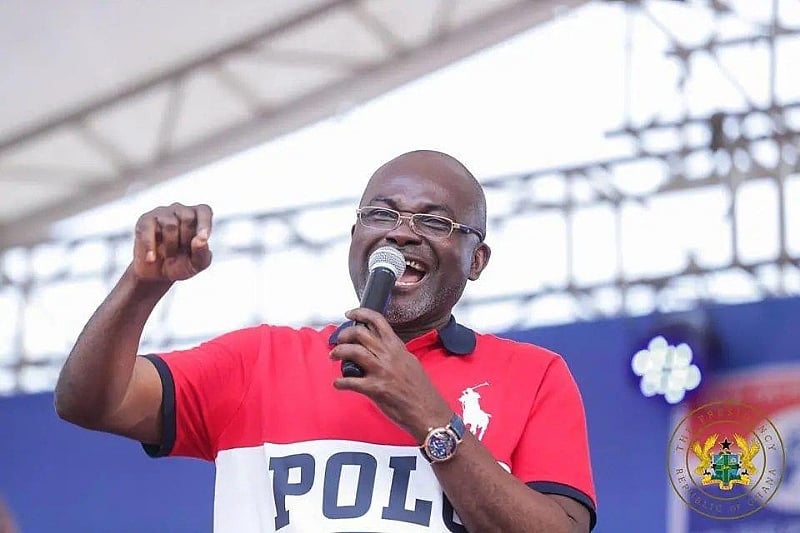Kennedy Agyapong’s critique of Dr. Bawumia’s potential candidacy hinges on a historical analysis of past NPP flagbearers and their electoral performance. Agyapong argues that the party’s tradition dictates a pragmatic approach to selecting its leader, emphasizing the importance of demonstrated electoral viability. He cites the case of Professor Albert Adu Boahen, the NPP’s first flagbearer, who was not given a second chance after his defeat in the 1992 elections. Agyapong contends that while Adu Boahen’s legacy was respected, the party prioritized its electoral prospects, opting for a different candidate in subsequent elections. This, according to Agyapong, underscores the party’s historical precedent of prioritizing winning potential above all else.
Agyapong contrasts Adu Boahen’s situation with those of former Presidents John Agyekum Kufuor and Nana Addo Dankwa Akufo-Addo, both of whom were afforded multiple opportunities to lead the party. He highlights Kufuor’s impressive performance in his first attempt, despite a short campaign period, which justified giving him another chance. This second chance, Agyapong emphasizes, resulted in Kufuor’s victory in the 2000 elections. Similarly, Akufo-Addo’s consistent improvement in each election, culminating in his 2016 victory, justified the party’s continued faith in his leadership. Agyapong underscores that both Kufuor and Akufo-Addo demonstrated consistent growth in their electoral performance, fostering hope and confidence within the party.
Agyapong’s core argument rests on the premise that a candidate’s past performance is a strong indicator of their future potential. He questions whether Dr. Bawumia, who served as vice-president under Akufo-Addo, possesses the same electoral appeal as his predecessors. Agyapong points to the significant drop in NPP votes in the 2024 election, attributing the loss to Bawumia’s leadership. He frames the upcoming decision as a crucial juncture for the party, urging members to prioritize realistic chances of victory over sentiment or loyalty. He warns against “gambling” with the party’s future by choosing a candidate whose past performance indicates a potential electoral liability.
Agyapong’s critique raises a critical question for the NPP: does loyalty to a party figure outweigh the pragmatic need for a candidate with demonstrable electoral appeal? He implicitly challenges the notion of entitlement to leadership, suggesting that past service, while commendable, does not automatically guarantee future success. He posits that blind faith in a candidate without considering their electoral track record could jeopardize the party’s chances of regaining power. He urges the party to objectively analyze Bawumia’s performance, weighing the potential risks against the potential rewards.
Agyapong’s call for realism could be interpreted as a strategic maneuver to position himself as a viable alternative to Bawumia. By emphasizing the importance of electoral viability, he implicitly presents himself as a candidate who can deliver victory. He strategically draws parallels between his own business acumen and the need for a pragmatic approach to politics, subtly suggesting that his leadership skills are transferable to the political arena. His critique of Bawumia, while seemingly objective, could also be viewed as a calculated move to undermine his rival’s standing within the party.
In essence, Agyapong’s message boils down to a pragmatic assessment of the NPP’s future. He argues that the party must prioritize its chances of winning the 2028 elections over sentimental attachments to any particular candidate. He contends that Dr. Bawumia’s performance in the 2024 election does not inspire confidence, making him a risky choice for the future. He calls on the party to learn from its past, emulating the strategic decisions that led to the successes of Kufuor and Akufo-Addo. By choosing a candidate with proven electoral appeal, Agyapong argues, the NPP can maximize its chances of returning to power. Ultimately, he frames the decision as a choice between loyalty and pragmatism, urging the party to choose the path that offers the greatest chance of success.


